Your Right to Remain Silent: A Constitutional Protection
In Canada, your right to remain silent is constitutionally protected and enshrined in the Canadian Charter of Rights and Freedoms. Generally, you are not obligated to provide any information to the police, but there are exceptions to this rule.
Exceptions to the Rule: When You Must Provide Information
- Upon Arrest: You are required to provide your name, address, and date of birth to the police.
- Motor Vehicle Incidents: If you are involved in a motor vehicle accident, you must complete a collision statement as per the Traffic Safety Act.
- Regulated Activities: Certain regulated activities may necessitate providing information to investigators or regulators.
Consult a Lawyer: Your Best Course of Action
If you are uncertain about your obligations, always consult with a lawyer. They can guide you on what information you must provide and what you can withhold, ensuring your rights are protected.
Can You Lie to the Police?
No, you cannot lie to the police. Lying to a police officer may constitute serious criminal offenses such as “obstructing a peace officer” or “obstruction of justice.”
Police Interaction: Meeting with the Police
If the police want to meet with you, there is a possibility they may arrest you. It’s crucial to consult with a lawyer before meeting them. You have the right to legal counsel before answering any questions or providing a statement.
Providing a Statement: Risks and Precautions
Even if you are innocent, speaking with the police carries risks. Your words might be used against you, and there could be legal consequences even if you believe you are completely innocent. Consulting a lawyer before speaking with the police is essential to safeguard your rights.
Speaking “Off the Record”: A Common Misconception
There is no concept of speaking “off the record” with a police officer. Anything you say, whether written or verbal, can be used against you in court.
Seeking Legal Counsel: Your Right, Not an Admission of Guilt
Speaking with a lawyer does not imply guilt. Both innocent and guilty individuals need legal advice. It is a fundamental right aimed at protecting your interests and ensuring you make informed decisions.
Who to Contact for Guidance?
If you have questions or concerns, reach out to a lawyer at Smyllie Law for expert advice before interacting with the police. Protect your rights and make informed choices with professional legal guidance.
